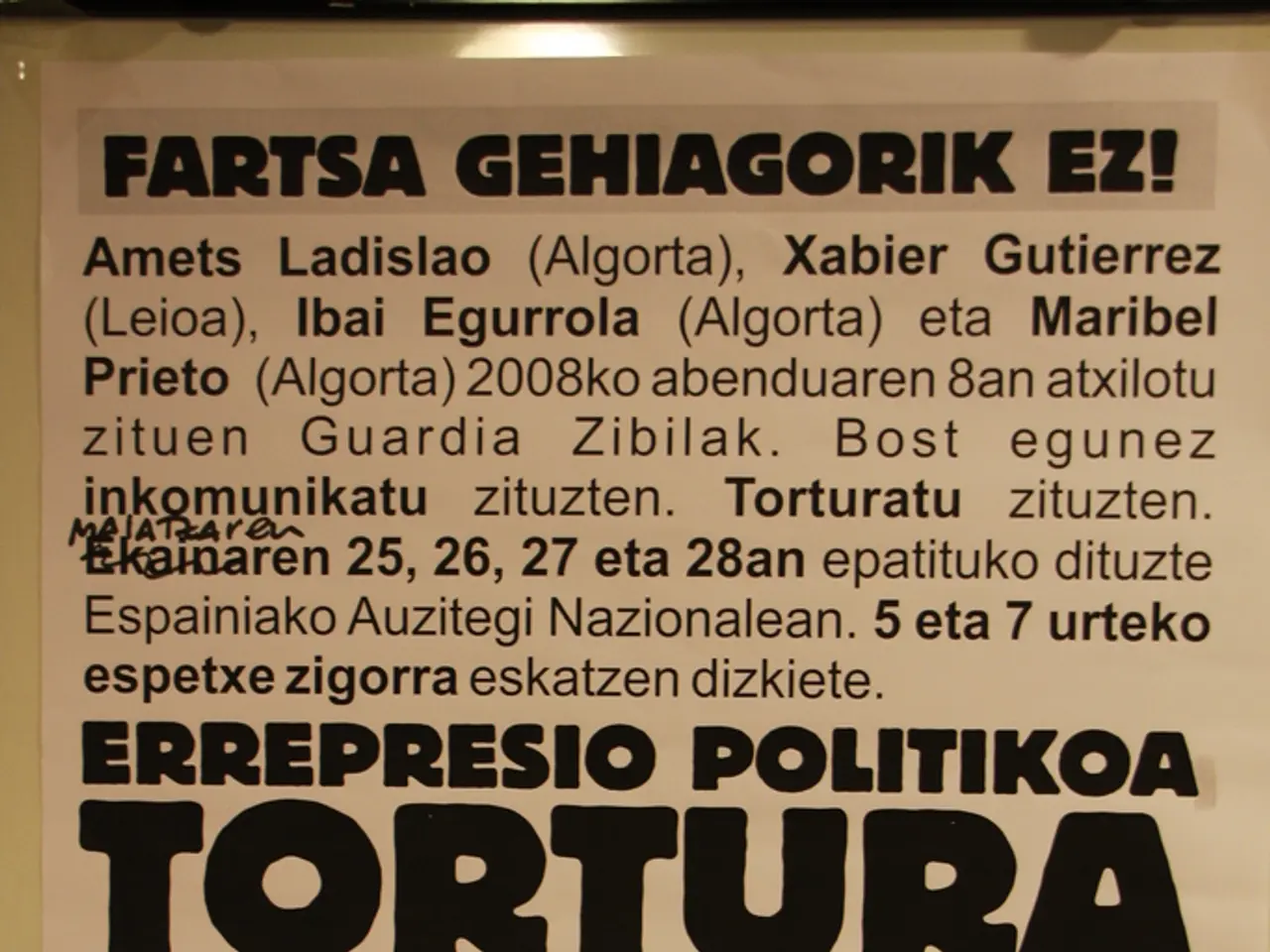Loss of infant results in incarceration
In El Salvador, a country known for its strict abortion laws, the ongoing battle for reproductive rights continues to be a contentious issue. The country enforces a total abortion ban with no exceptions, even in cases of rape, incest, miscarriage, stillbirth, or life-threatening conditions for the woman [1][3][5].
This ruling sets a major precedent in matters of reproductive rights in Latin America, opening the door for a possible change in the law. However, El Salvador has rejected international recommendations to decriminalize abortion or to ease restrictions, maintaining its hardline stance [2].
Since the election of President Nayib Bukele, there have been no significant moves to change the anti-abortion laws. Instead, the government has continued to uphold these draconian restrictions as part of its broader authoritarian policies [2]. The current administration has even enacted a "Foreign Agents" law in 2025 that restricts NGOs and media receiving foreign funding, further inhibiting advocacy efforts for reproductive rights [2].
Despite the lack of official effort to reform abortion laws, cases of women being prosecuted for miscarriages or stillbirths continue. Around ten women are reportedly being prosecuted in similar cases in El Salvador, arrested notably since the state of emergency was declared in March 2022 [6].
One such woman is Zuleyma Beltrán, who was convicted to 26 years in prison but is now free after spending 10 years and 7 months in a women's prison [4]. Another is Teodora Vázquez, who was arrested and sentenced to 30 years in prison in 2007 after giving birth to a stillborn baby without any investigation or medical expertise [7].
These cases highlight the structural violence and human rights violations affecting women and health providers in El Salvador. The Inter-American Court of Human Rights has highlighted this issue, as seen in the case of Beatriz, who endured prolonged health and mental anguish due to legal and medical delays imposed by the abortion ban [1].
Campaigns against sexual violence in El Salvador do not address the aggressors, but rather focus on advising women on how to protect themselves. Teodora Vázquez believes that if her testimony can prevent another woman from going through what she and others have experienced, it would be an immense victory [8].
Meanwhile, concerns have been raised about the "Nacer con cariño" (Born with tenderness) law proposed by Gabriela de Bukele, as it does not address the challenges faced by teenage mothers, rape victims, and other vulnerable women [9].
The Quebec Fund for International Journalism financially supported the creation of this report. It is a reminder that the fight for reproductive rights in El Salvador is far from over.
References:
- Inter-American Court of Human Rights ruling on Beatriz case
- Amnesty International report on El Salvador
- Human Rights Watch report on El Salvador
- Zuleyma Beltrán's release from prison
- El Salvador's total abortion ban
- Women prosecuted for stillbirths in El Salvador
- Teodora Vázquez's case
- Teodora Vázquez's testimony
- Concerns about "Nacer con cariño" law
- Ongoing controversies surround women's health and wellness in El Salvador, as the country's strict abortion laws, which have no exceptions even in cases of rape or life-threatening conditions, continue to be enforced.
- Science and politics intertwine in El Salvador's reproductive rights debate, as the country denies international recommendations to decriminalize abortion or ease restrictions, despite mounting evidence pointing towards the need for more lenient policies.
- General news highlights the ongoing struggle for justice in El Salvador, with instances of women being prosecuted for miscarriages or stillbirths, and cases like Zuleyma Beltrán and Teodora Vázquez serving as stark reminders of the human rights violations occurring in the country.




